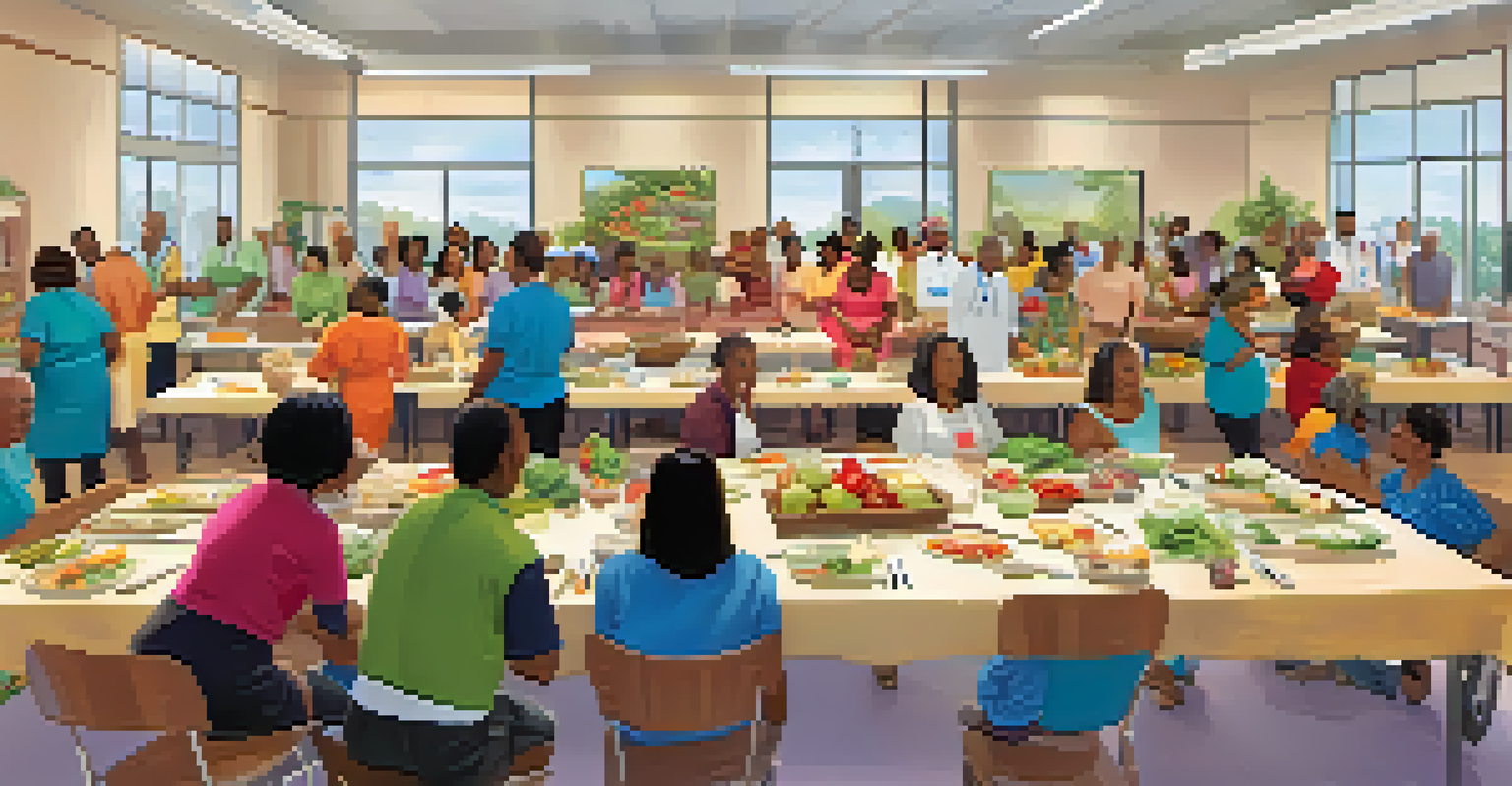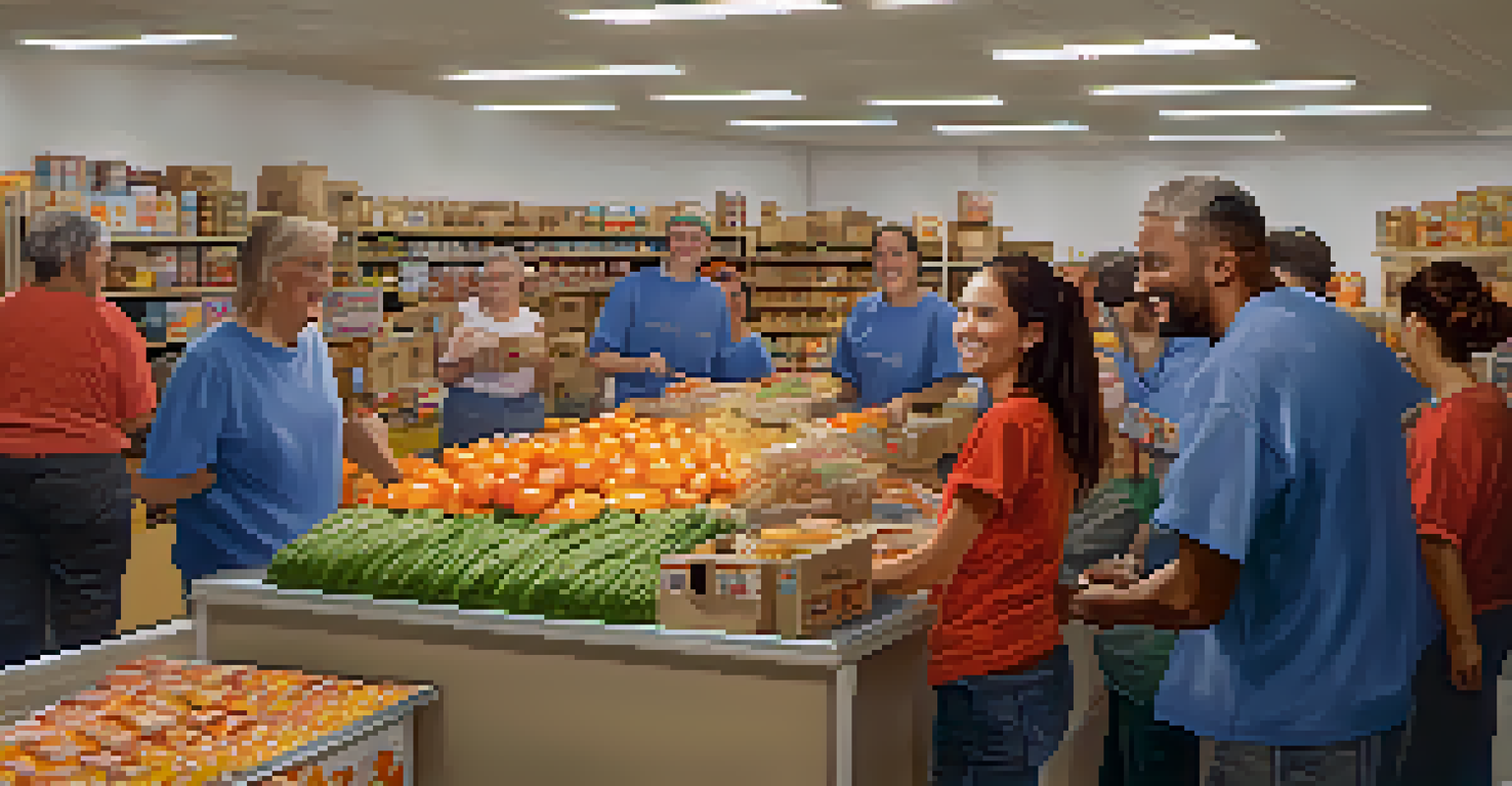The Role of Local Nonprofits in Austin's Health Initiatives

Understanding the Health Landscape in Austin
Austin, known for its vibrant culture and music scene, also faces unique health challenges. Issues like access to healthcare, mental health services, and nutritional support are prevalent. Understanding these challenges is vital for nonprofits looking to make an impact.
The greatest wealth is health.
The city's diverse population means that health initiatives must be tailored to meet various needs, from low-income families to the elderly. This complexity requires collaboration and innovative solutions from local organizations. Nonprofits play a crucial role in bridging gaps in healthcare access.
By focusing on community needs, local nonprofits help to raise awareness and educate citizens about health resources. They often act as advocates, ensuring that all voices are heard in discussions about public health policy.
Key Local Nonprofits Leading Health Initiatives
Several nonprofits in Austin are at the forefront of health initiatives, each with a unique focus. For instance, the Austin Area Interreligious Ministries (AAIM) works to eliminate health disparities through community health programs. Their efforts include health fairs and educational workshops.

Another notable organization is People's Community Clinic, which provides comprehensive primary care services to underserved populations. They emphasize preventive care, helping individuals manage chronic conditions and improve their overall well-being.
Health Challenges in Austin
Austin faces unique health challenges, including access to healthcare and mental health services, requiring tailored solutions from local nonprofits.
These nonprofits not only provide essential services but also foster a sense of community, encouraging local residents to engage in healthier lifestyles. Their impactful work showcases the power of grassroots movements in addressing health issues.
The Role of Volunteerism in Health Initiatives
Volunteerism is the lifeblood of many nonprofits in Austin, particularly in health initiatives. Volunteers bring diverse skills and perspectives that enhance service delivery and outreach efforts. They help with everything from administrative tasks to direct patient care.
Volunteers do not necessarily have the time; they just have the heart.
Many local organizations rely on volunteer support to host events, distribute food, or provide health screenings. This community involvement not only aids the nonprofits but also empowers volunteers, giving them a sense of purpose and connection to their community.
Moreover, engaging volunteers creates a ripple effect, as they often share their experiences and encourage others to get involved. This communal spirit cultivates a culture of health and support throughout Austin.
Collaborations That Strengthen Community Health
Collaboration between nonprofits, government agencies, and private sectors is essential for effective health initiatives. By pooling resources and expertise, these collaborations can tackle complex health issues more efficiently. For example, partnerships with local hospitals can enhance health services provided by nonprofits.
Such collaborations also allow for data sharing, leading to better-informed health strategies. When nonprofits work together with local health authorities, they can identify emerging health trends and respond more effectively.
Nonprofits Drive Community Health
Local nonprofits play a crucial role in enhancing health initiatives, providing essential services and fostering a sense of community engagement.
These strategic alliances not only amplify the impact of individual organizations but also foster a more robust health network in Austin. Ultimately, a united front is crucial for addressing the multifaceted health challenges faced by the community.
Innovative Health Programs by Local Nonprofits
Innovation is key to addressing health challenges, and many Austin nonprofits are leading the way with creative programs. For instance, some organizations have embraced technology to offer telehealth services, making care more accessible to those with mobility issues or transportation barriers.
Others focus on preventive health through unique initiatives like community gardens, which promote nutrition and physical activity. These gardens not only provide fresh produce but also serve as spaces for education and community bonding.
By thinking outside the box, nonprofits are finding new ways to engage the community and promote healthier lifestyles. This innovative spirit is essential in adapting to the ever-changing health landscape.
The Impact of Health Education Programs
Health education is a cornerstone of many nonprofit initiatives in Austin. Programs that focus on nutrition, mental health, and disease prevention empower residents to make informed choices. For instance, workshops on healthy cooking and nutrition help families understand how to prepare affordable, nutritious meals.
Additionally, mental health awareness campaigns are crucial in reducing stigma and encouraging individuals to seek help. By offering resources and support, nonprofits help foster a healthier community overall.
Volunteerism Fuels Health Initiatives
Volunteers significantly contribute to health programs, enhancing outreach efforts and creating a culture of health and support in Austin.
Education programs not only inform but also inspire action, encouraging community members to take charge of their health. This proactive approach is essential for cultivating a culture of wellness in Austin.
Success Stories: Transforming Lives Through Local Nonprofits
Success stories from local nonprofits highlight the profound impact they have on individual lives and the community. Take, for example, a family that benefited from a local food pantry's nutritional program, ultimately leading to improved health outcomes and a better quality of life.
These narratives serve as powerful testimonials to the effectiveness of nonprofit initiatives. They illustrate not just the services provided, but the hope and resilience fostered through community support.

Sharing these success stories encourages further engagement and support for nonprofits, reinforcing the belief that collective efforts can lead to meaningful change. Each story adds to the tapestry of Austin's health initiatives, showcasing the power of community.